Graduate Medical Education's goal? Building residency relationships
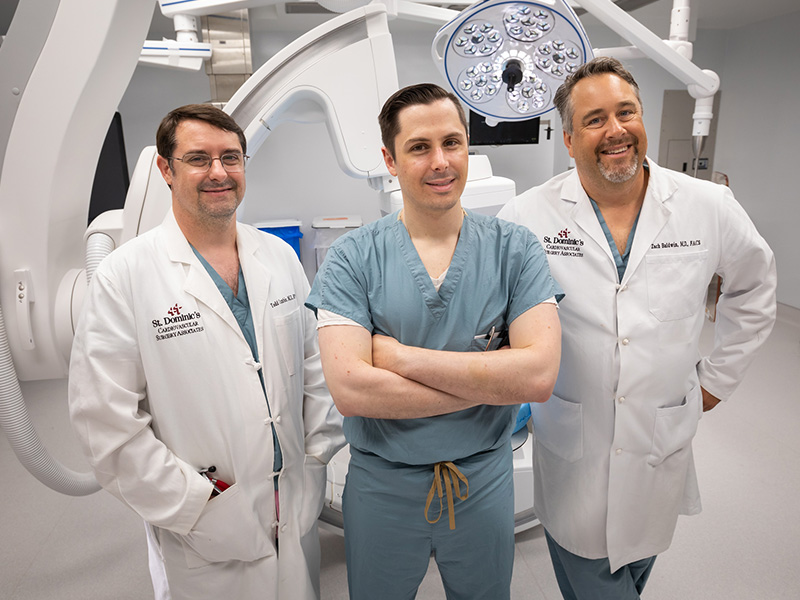
Dr. Zachary Virgin hasn’t yet made the jump to private practice or academia, but he’s still getting plenty of on-the-job training.
Virgin is in his second year of a two-year vascular surgery fellowship at the University of Mississippi Medical Center. His training is a “five plus two” program in which he completes a five-year general surgery residency, followed by fellowship.
He’s rotating for two months at a time between the Medical Center, St. Dominic Hospital in Jackson, and the G.V. “Sonny” Montgomery Veterans Affairs Medical Center in Jackson.
At St. Dominic, “we get exposed to a high volume of bread-and-butter vascular surgery cases, and we get to see what private practice is like,” Virgin said. “It’s more like real life outside academia.”
His story is just one example of the work of UMMC’s Office of Graduate Medical Education. The office has at least 50 relationships that allow UMMC to send residents and fellows to perform rotations, often where they’re most sorely needed.
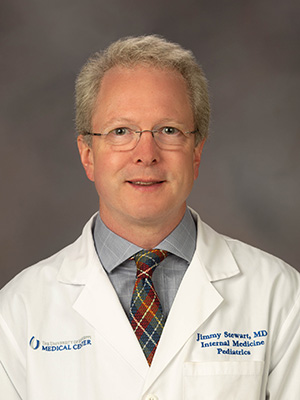
Many of the state’s vascular surgeons are concentrated in the metro Jackson area, but it’s a specialty that rural Mississippi hospitals and clinics often can only dream of offering. The Office of Graduate Medical Education makes possible “wonderful opportunities to extend quality, appropriately supervised patient care to areas of the state that might not have it otherwise,” said Dr. Jimmy Stewart, professor of medicine and associate dean for Graduate Medical Education.
“We want it to be mutually beneficial,” he said. “We look for ways to foster and build these relationships. We want to help a lot of the individual areas of the state that need coverage.”
That includes Corinth in rural Alcorn County. Soon, Magnolia Regional Health Center there will have a dermatologist on staff, thanks to a unique relationship with UMMC.
Dr. Ira Harber, who grew up 30 minutes from Corinth in tiny Iuka, will see patients at MRHC after he finishes his three-year residency. The Medical Center’s Department of Dermatology was able to create an additional residency slot for Harber after MRHC agreed to pay the cost in exchange for Harber practicing there for six years following his training.
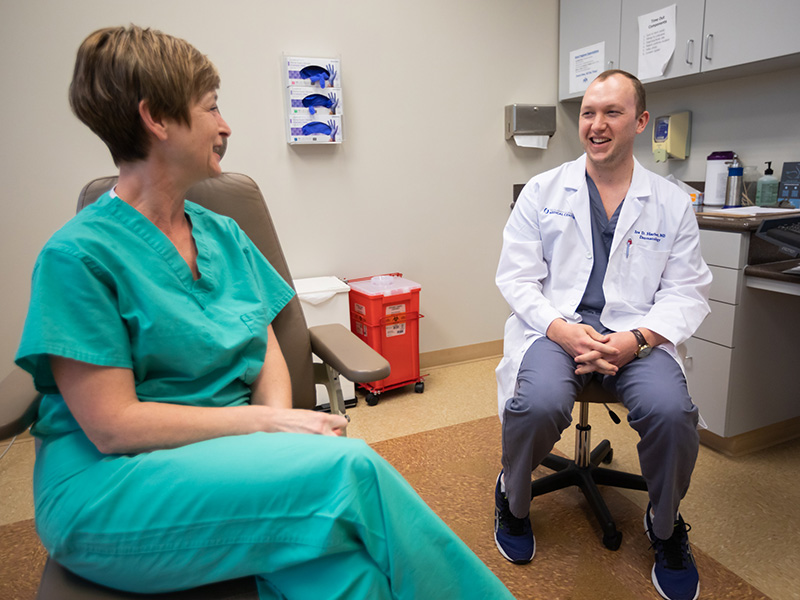
“If you’ve got somebody who wants to go back home, wants to specialize, and there’s a significant need in the specialty they’re interested in, then it’s a 360-degree win,” said Harber, who’s completing the first year of his residency. “When it lines up, it works so well.”
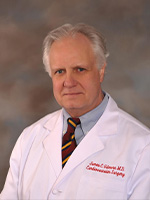
“Magnolia Regional Health Center is fortunate to have had the opportunity to partner with the University of Mississippi Medical Center to help us to continue to grow our medical community in Corinth,” said Dr. James Gilmore, a cardiovascular and thoracic surgeon and chief medical officer at MRHC.
“Dermatologists are extremely difficult to recruit, so we know Dr. Harber is going to be a wonderful addition to our medical staff.”
About 40 percent of UMMC’s School of Medicine graduates will begin their training at in-state programs, statistics from the Association of American Medical Colleges show.
Nationally, 47.5 percent of doctors are active in the state where they completed that phase of their training, the association says.
Although UMMC’s relationship with MRHC is unique, “we’ve had other groups, either physicians’ groups or hospitals, approach us on funding residency positions because of their interest in individuals, or their interest in succession planning,” Stewart said. “They might have some physicians in specialty areas that are retiring. They want to help education and to give back, but they also want to improve care.”
The cost of a hospital-sponsored residency varies, but in the Southeast is about $100,000 annually, Stewart said. That figure includes benefits such as health insurance, vacation and sick leave – leaving residents with about half that amount as salary.
“Thankfully, University Hospital funds a lot of the salaries in addition to money we get from the federal government, and the Veterans Administration funds about 80 positions. We have 10 or 15 other positions that are funded in creative ways,” Stewart said.
Some of the relationships call for a hospital to pay a portion of a resident’s salary in exchange for that person training at the hospital and being part of the care team. “We have to think about our long-term financial solvency in how we train physicians,” he said.
Often, a hospital or clinic will work with UMMC on other details that make for a successful training opportunity. “If it’s going to be a month-long rotation, then housing is a big issue,” Stewart said. “We can’t ask them to rent an apartment there when they already have one here.
Pairing residents and fellows with off-campus workplaces, though, is not just about money. “We are building relationships for educational training,” Stewart said. “We have doctors in the state who trained here. They enjoy having residents at their clinics for a month or two weeks, and it gives our trainees an opportunity to get out and see what medicine is like in a specialty.”
Virgin’s mentors at St. Dominic are vascular surgeons Dr. Zachary Baldwin and Dr. Todd Cumbie.
“Different hospitals run in different fashions,” Baldwin said. “It’s well worth it for (residents and fellows) to see what that looks like as a career.”
“It benefits them to see how we schedule our day, how we manage the clinic and the OR, and how we approach problems,” Cumbie said. “It gives them a more realistic look at how their day-to-day will look when they finish training.”
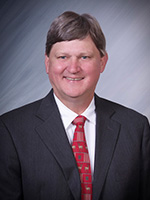
Among UMMC’s residency relationships are formal affiliations with Anderson Regional Medical Center in Meridian and Oktibbeha County Hospital Regional Medical Center in Starkville. “One of the largest obstacles that places like Meridian encounter in physician recruiting is getting the newly trained physicians to visit and spend some time in the community and hospital,” said Dr. Keith Everett, Anderson Regional’s chief medical officer.
“With this type of relationship in place, the residents and fellows have the opportunity to experience what Meridian and Anderson have to offer, and it allows us to become more competitive in the recruiting of that physician.”
UMMC must be mindful of any educational requirements that are determined by the American Council on Graduate Medical Education, which oversees all residencies and fellowships nationwide. “Whether they train here or Ellisville or Tupelo, we want to make sure they get the educational opportunity that will meet all of the requirements,” Stewart said.
“After spending time at Anderson, the residents and fellows are usually pleasantly surprised at the level of training our medical staff has, the advanced services we offer, and the high quality of our care,” Everett said.
“After experiencing this, it can help them decide to return and practice here. We have seen this firsthand with family practice residents remaining here after completion of their residency.”


